
On October 29th, 1861, Robert Schell, a white man, walked into a San Francisco barbershop, pulled out a gun and shot George Gordon, the African American proprietor. There were eyewitnesses to the killing, but there was one problem. They were all black. And at the time, California had laws that banned black people or “mulattoes” from testifying against whites in court. So, the judge refused to allow the witnesses to give evidence about what they had seen. There was however, one white man who had also seen Schell commit the murder. Or at least he identified as white. But the defense attorney objected to his testimony as well, claiming that he was really black. The judge ordered James Cowes, the witness, to undergo a humiliating physical examination of the hair all over his body to determine his race. Supposed racial science experts concluded that Cowes was in fact black, and he was not allowed to testify. Without his key testimony, the killer got a lenient sentence of just two years. The murder of the prominent black businessman and civil rights activist caused a public outcry and galvanized opposition to the testimony exclusion laws.
California Book of Statutes, 1850
Chapter 99: An Act Concerning Crimes and Punishment:
No black or mulatto person, or Indian, shall be allowed to give evidence in favor of or against a white man.
RACIAL SCIENCE IN A SAN FRANCISCO COURTROOM
The story of the George Gordon killing
Narrated by Martin Luther McCoy
Audio Soundtrack: Music by Kai Engel
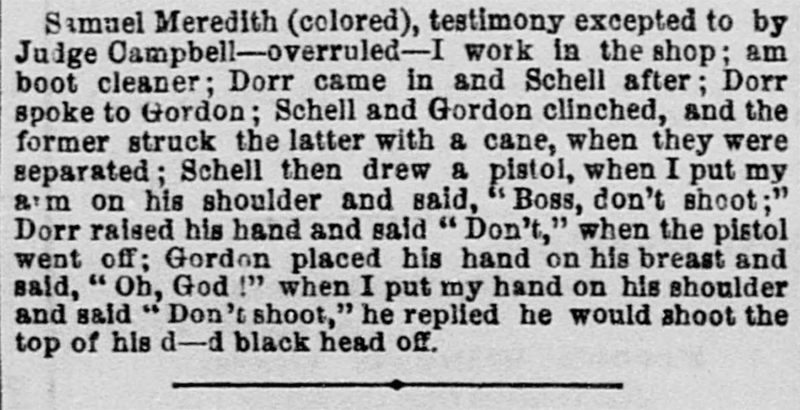
Newspaper clipping from California Digital Newspaper Collection // Credit: Sacramento Daily Union, Volume 22, Number 3306, 1 November 1861. California Digital Newspaper Collection, Center for Bibliographic Studies and Research, University of California, Riverside, http://cdnc.ucr.edu
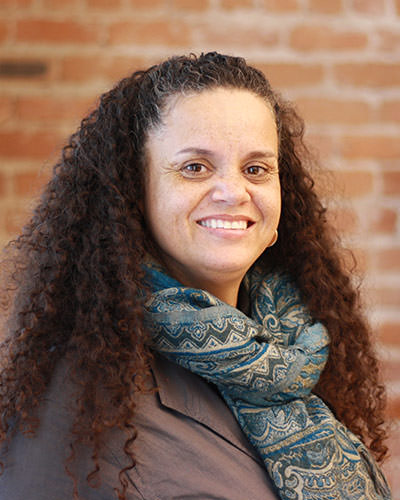
On the racist legacy of black testimony laws and the discrediting of black courtroom testimony that persists to this day.
Photo: Tirien Steinback, former Chief Program Officer ACLU of Northern California
A white man shoots and kills a prominent Black businessman in San Francisco in an unprovoked attack. There are plenty of witnesses. But there's a problem. They're all Black. And in California in 1861, that means their testimony doesn’t count. From 1850 until 1863, California had a law that banned African Americans from testifying against white people in criminal cases. In this episode, we bring you the little-known story of the testimony laws. We meet the Black activists who fought to repeal them. And we examine these racist laws’ enduring legacy in our legal system today.
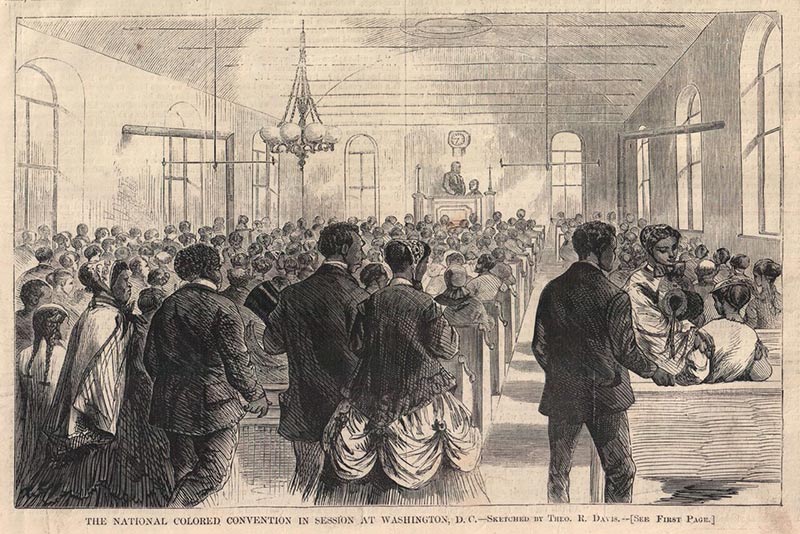
The Colored Conventions were a monumental organizing effort by black people across the country to fight for full citizenship rights. The conventions laid a foundation that the civil rights movement would build on.
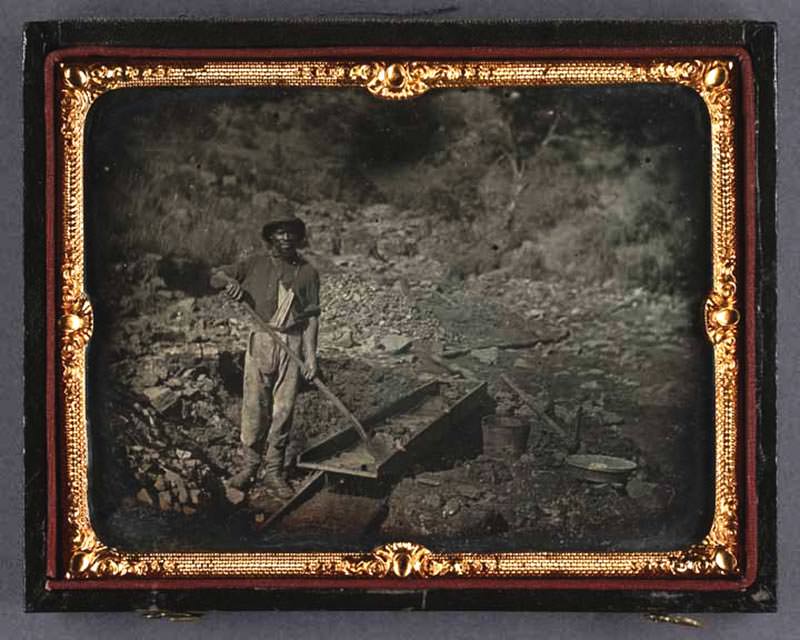
In the first test of California’s Fugitive Slave Law, three formerly enslaved black men who had built a lucrative mining supply business were stripped of their freedom and deported back to Mississippi.
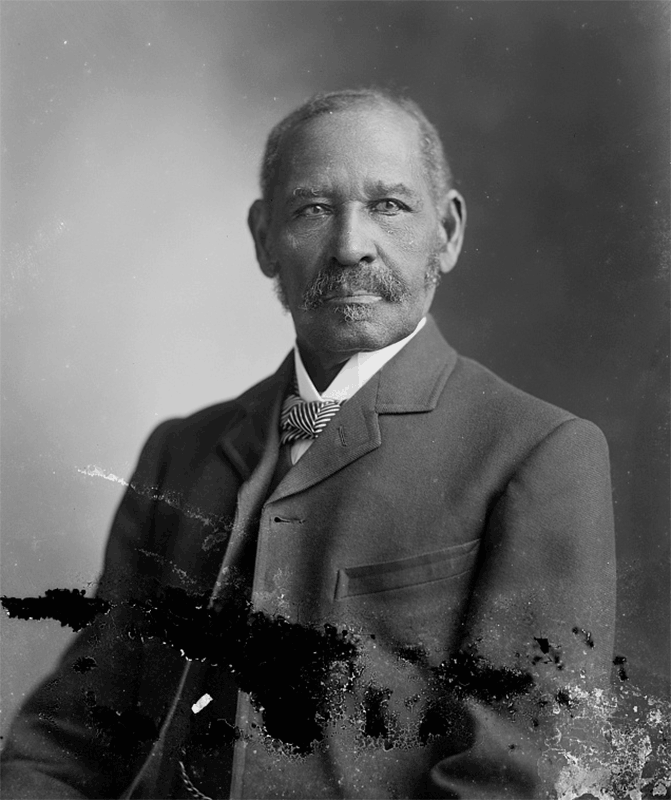
After waging a long battle against California’s anti-black laws, Mifflin Wistar Gibbs, a prominent civil rights activist and entrepreneur in San Francisco, helped lead a migration of several hundred African Americans to Victoria, British Columbia.
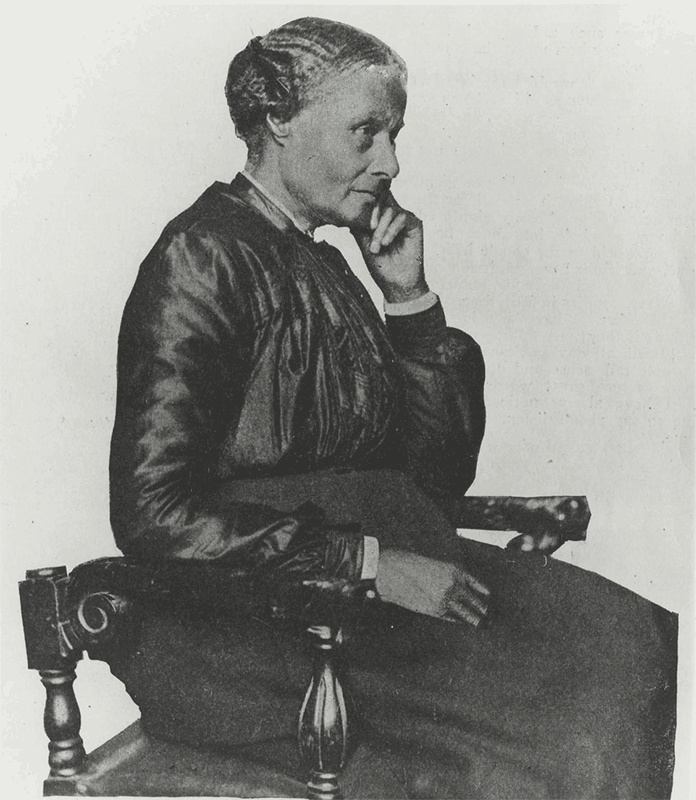
Mary Ellen Pleasant was a self-made millionaire and leading abolitionist based in San Francisco during the Gold-Rush era.
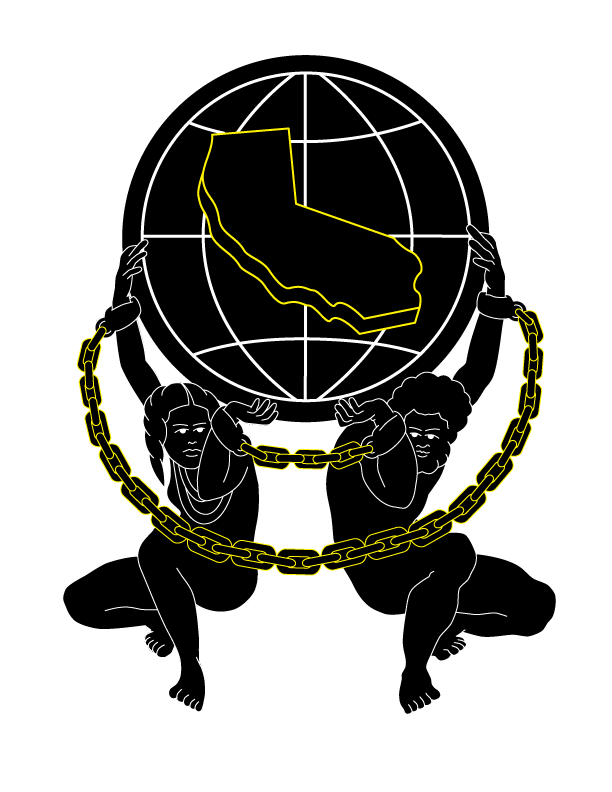
The mission of Gold Chains is to uncover the hidden history of slavery in California by lifting up the voices of courageous African American and Native American individuals who challenged their brutal treatment and demanded their civil rights, inspiring us with their ingenuity, resilience, and tenacity. We aim to expose the role of the courts, laws, and the tacit acceptance of white supremacy in sanctioning race-based violence and discrimination that continues into the present day. Through an unflinching examination of our collective past, we invite California to become truly aware and authentically enlightened.